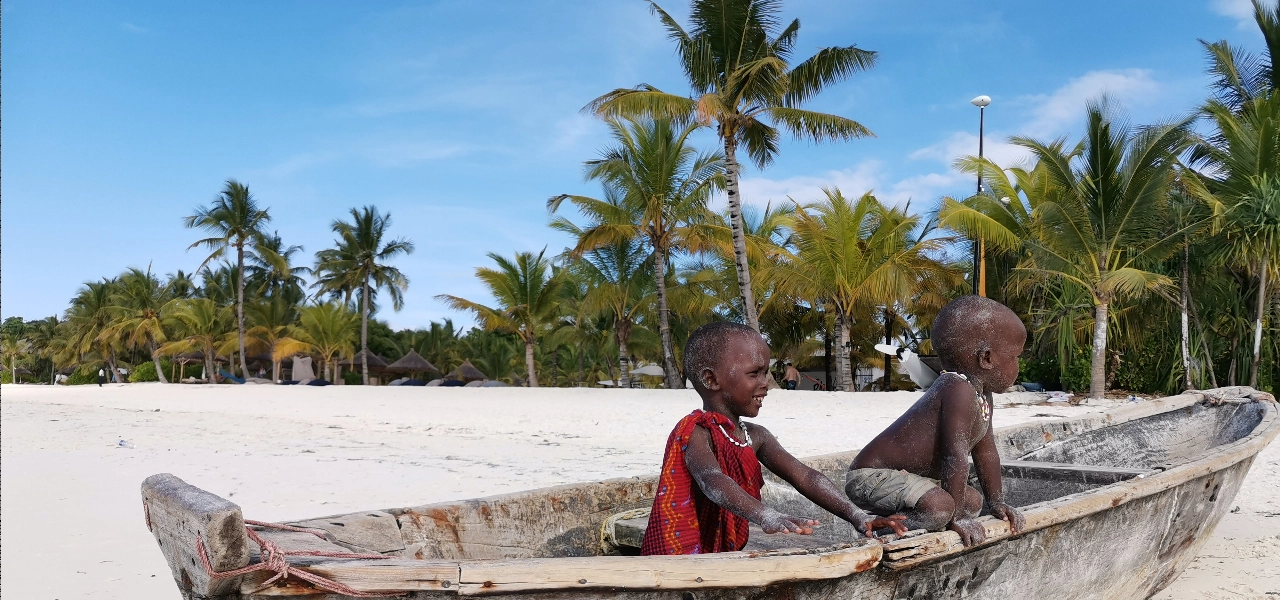

Snow-white, powder-fine sand and the countless shades of blue as far as the eye can see.
In the blazing sunshine, sunglasses are a must, as the power of the light is multiplied by the reflections from the sand and the ocean water. The heat is scorching, but it’s made bearable only by the constant breeze. And the smells? Incredible! The scent of fresh fruit, spices, the salty ocean, and near the villages, the depressing smell of poverty mixes together…
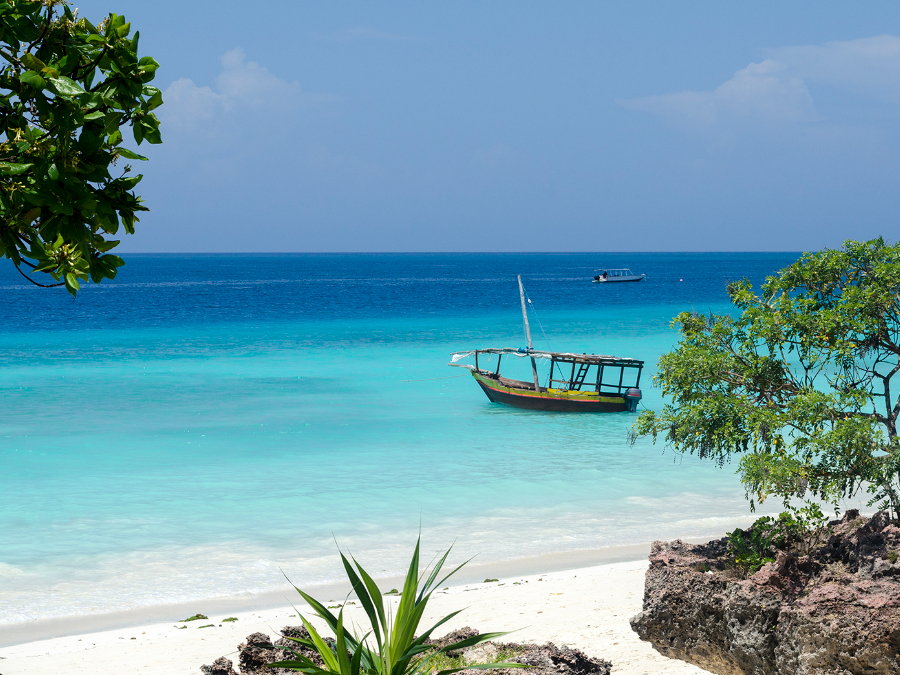
This is Africa!
When we arrive from winter to summer, the sudden high humidity and heat can even dizzy the seasoned traveler. A crowd is packed into the airport building, waiting to fill out the visa application form, which is as large as a sheet, and after standing in line for up to two hours, they can finally pay the 50-dollar visa fee and get the necessary stamp in their passport for entry. Stepping out of the airport’s only dilapidated building, we find ourselves among vendors and porters, who are more than happy to help for a small tip. If we don’t have a pre-arranged transfer to the hotel, we’ll definitely find someone willing to take us there. Apart from the accent, most people speak English quite well—at least those whom an average tourist is likely to encounter.
Like most African countries, Zanzibar is over-bureaucratized and filled with rules, many of which exist solely to extract a bit of extra money from locals, but even more so from uninformed tourists. You need permission for everything. Zanzibar has left-hand driving, but it's not just because of this that we can't drive out of habit. Even if we have an international driver’s license, a local driving permit is required, which can only be obtained after a medical examination and completing a written test. Without it, at every police checkpoint, we can expect a small fine—ranging from 5 to 20 dollars, depending on our bargaining skills—for which we may not even receive a receipt (because, of course, they've ran out of them)
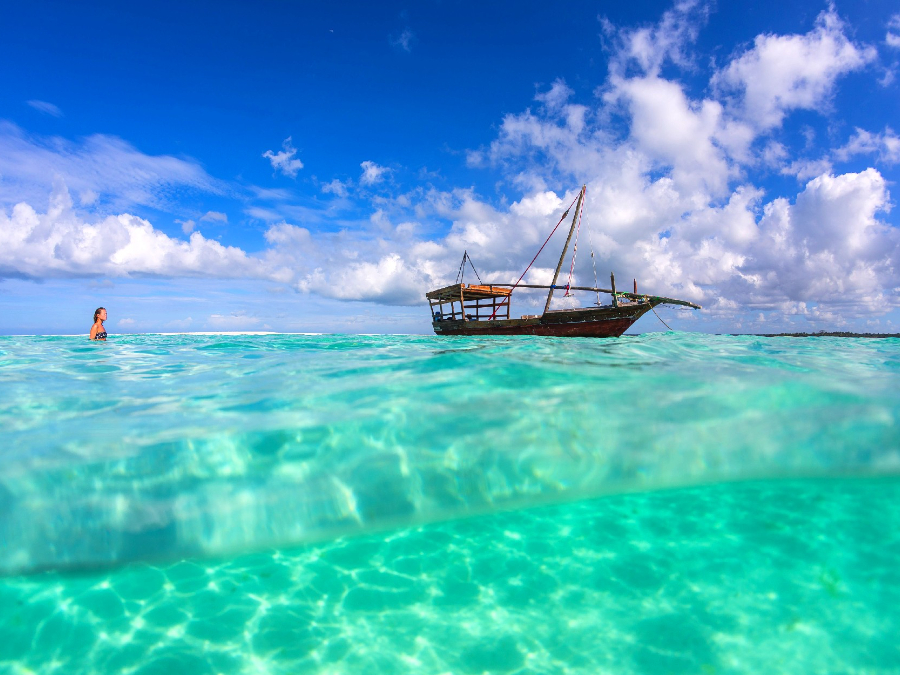
Those who expect European standards will be disappointed. This is Africa! Instead of familiar rules, there are the endless oceans breaking on coral reefs, sparkling white sand, tropical vegetation, and friendly—sometimes pushy—Zanzibaris. Breathtaking beauty and hopeless poverty. This is Africa! Love or hate. It either enchants you or completely robs your soul. There is no middle ground. This is the land of extremes.
Zanzibar through the eyes of a visitor
Zanzibar is an archipelago off the eastern coast of Africa, consisting of two main islands. It belongs to Tanzania—having united with Tanganyika in 1964 after being freed from British colonial rule—but it has its own parliament and president. Its area is roughly half the size of a city like Los Angeles, with a population of over one and a half million. The official languages are Swahili and English, and its currency is the Tanzanian shilling, though the dollar and euro are accepted almost everywhere. Zanzibar's capital—and in fact, its only city—is the town of Zanzibar, located on the western coast of the island.
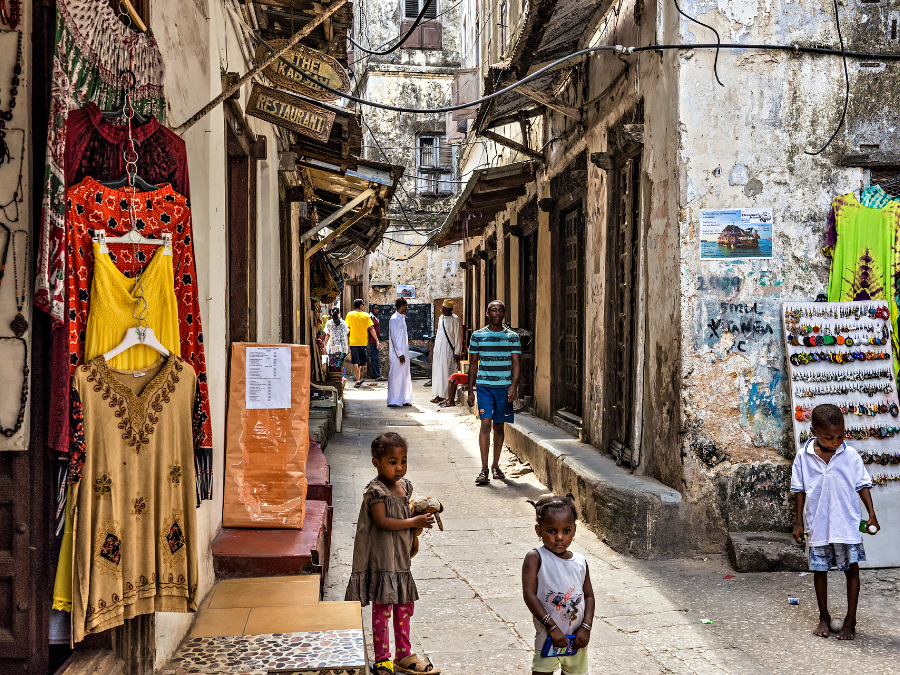
The Old Town, Stone Town – named after the coral reefs surrounding the island – is part of the UNESCO World Heritage. Most of its buildings are over two hundred years old. The cityscape has hardly changed since then, making our visit feel like a time travel. But it’s not just the old buildings that have survived; the traditions of Zanzibar's craftsmanship have also endured, with the most famous being the intricately carved doors, which symbolized the owner's wealth and rank within the community. The oldest surviving door was made in 1694.
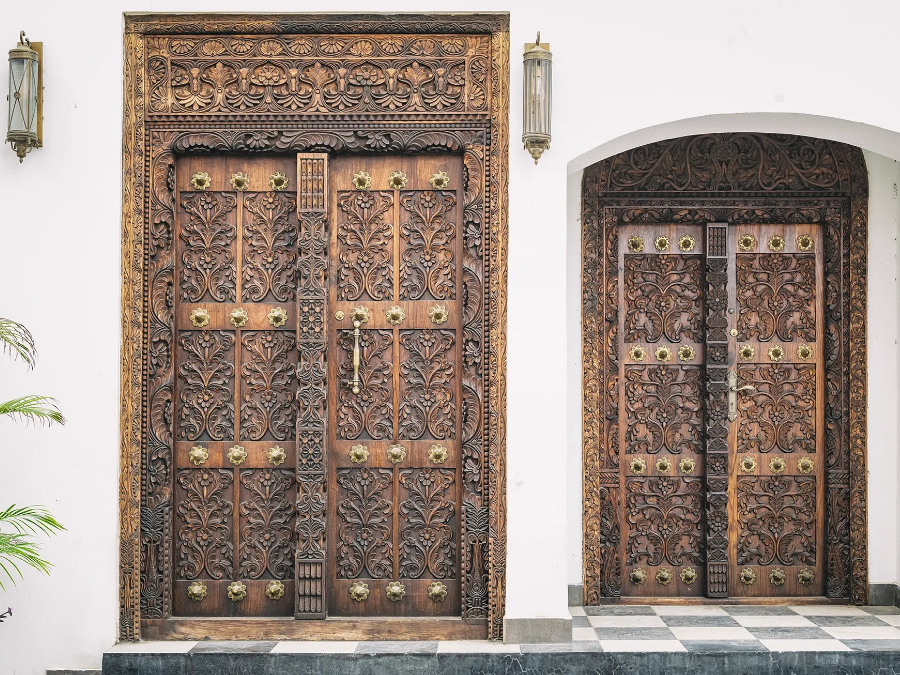
While in the city, we can visit the former slave market, but a must-see attraction is the bustling bazaar and market, where we can learn why Zanzibar is called the Spice Island. We can also pilgrimage to the birthplace of Freddie Mercury, like many other tourists, while the locals don’t pay much attention to the memory of one of the world's greatest rock idols. About half an hour by motorboat from Stone Town is Prison Island, once a holding place for rebellious slaves. Perhaps even more interesting is that the island is home to giant tortoises, with some individuals reaching over three hundred years old.
Zanzibar is a dream island. Luxurious hotels, wooden and bamboo buildings, shady groves, and palm trees await those arriving in Paradise. Fantastic service, tempting buffets, cocktails, snow-white beaches, turquoise seas, and sky-blue pools. Air-conditioned bungalows, colorful flowers, spice forests, scarves, clothes, and jewelry. A colorful, fragrant spectacle that is just waiting to captivate and spoil us. Today, all it takes is a mobile phone with a good-quality camera, tucked away in our pocket, to bring home the special moments we experience.
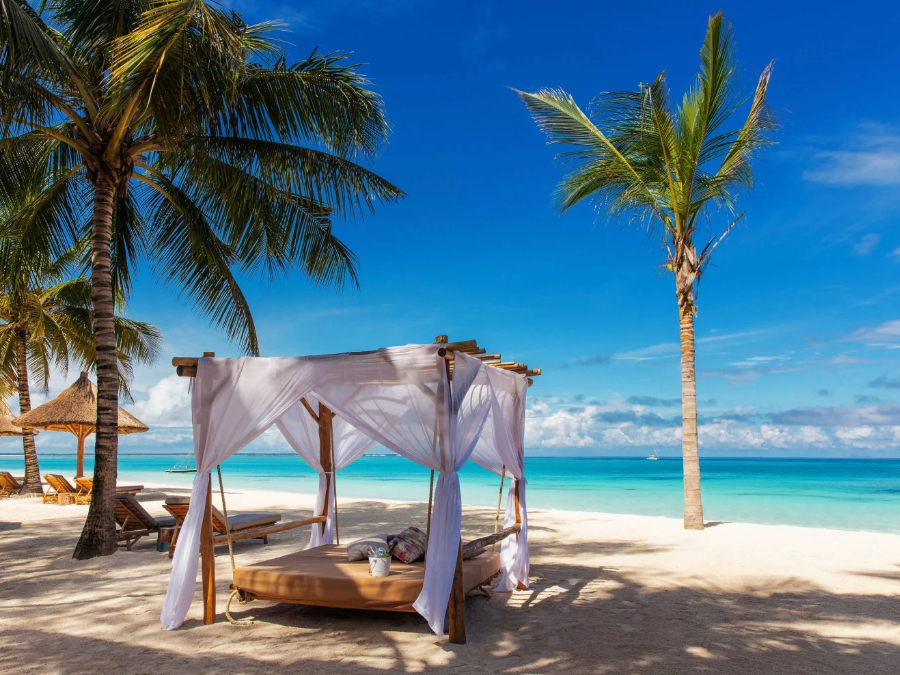
The coastline is freely accessible everywhere, stretching for several kilometers, making it easy to meet and chat with locals. Along the shore, many vendors offer their goods, from African scarves to handcrafted souvenirs made of leather, stone, and shells, as well as jewelry and paintings. For a bit of money, you can get just about anything. Really, anything! Hotels warn against individual travel, as no one takes responsibility for the services offered by the "beach boys." If you're looking for reliability, it's better to book with a recommended—and more expensive—tourist service provider at your hotel to explore the island. If you're feeling a bit more adventurous, you can spontaneously choose from the numerous activities offered along the beach, such as diving, sunset boat rides, or spice plantation visits. And of course, don't forget to haggle! Everything, everywhere, as you can usually get the desired item or excursion for a fraction of the initial price.
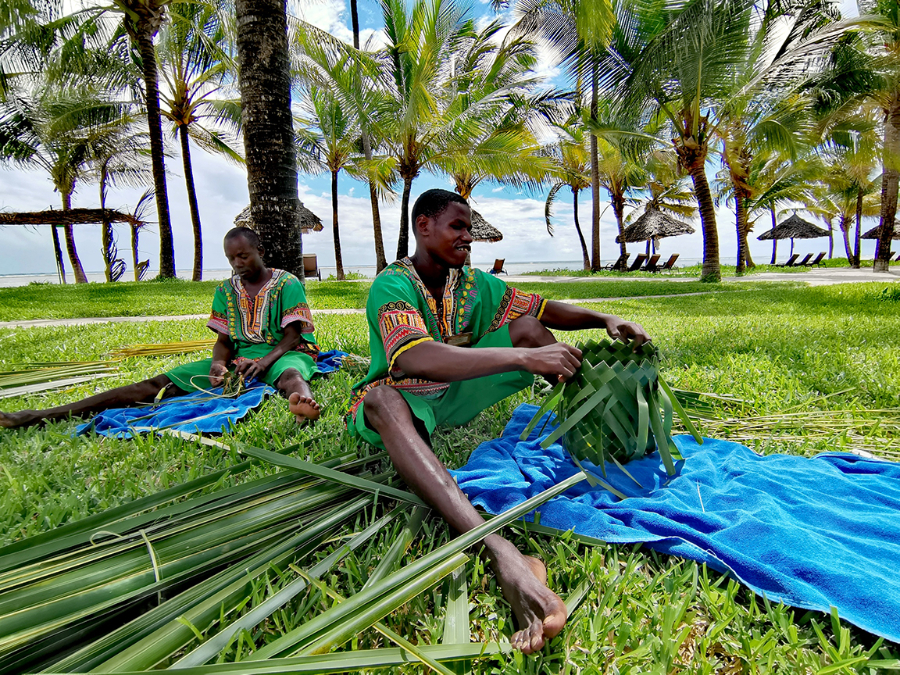
The locals, especially the children, are happy to pose for the camera, but out of respect and to avoid conflicts, always ask for permission before taking a photo.
Along the shore, it’s easy to encounter Maasai warriors, who have migrated from Tanzania or Kenya to support themselves by selling small souvenirs or by captivating tourists with their performances. On starry nights, during the full moon, fires are lit, and we can watch the Maasai warriors perform their distinctive jumping dance, accompanied by monotonous chanting. The Maasai are a proud, warrior people who once defended their land and cattle but also raided neighboring tribes. Today, they entertain European tourists, who are often unaware of their deep-rooted traditions, all day long.
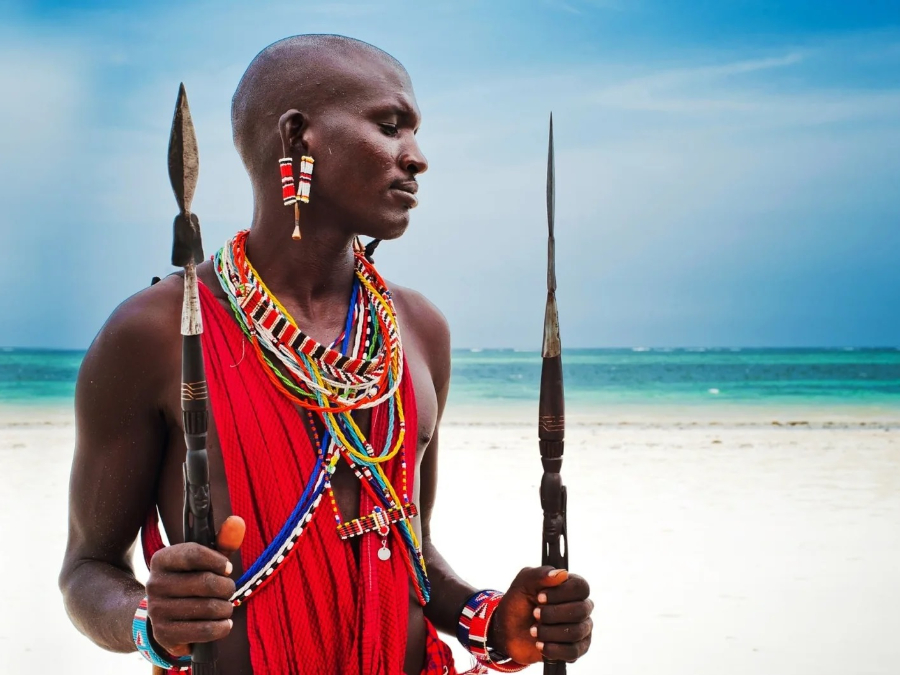
Zanzibar's other face
Beyond the five-star resorts and meticulously maintained lush tropical parks lies the real Zanzibar. It is the harsh African reality, where, despite the hopelessness, we encounter people who radiate genuine smiles and even happiness. They don’t know what snow is, where Paris is, they don’t understand exchange rates or the purpose of winter coats.
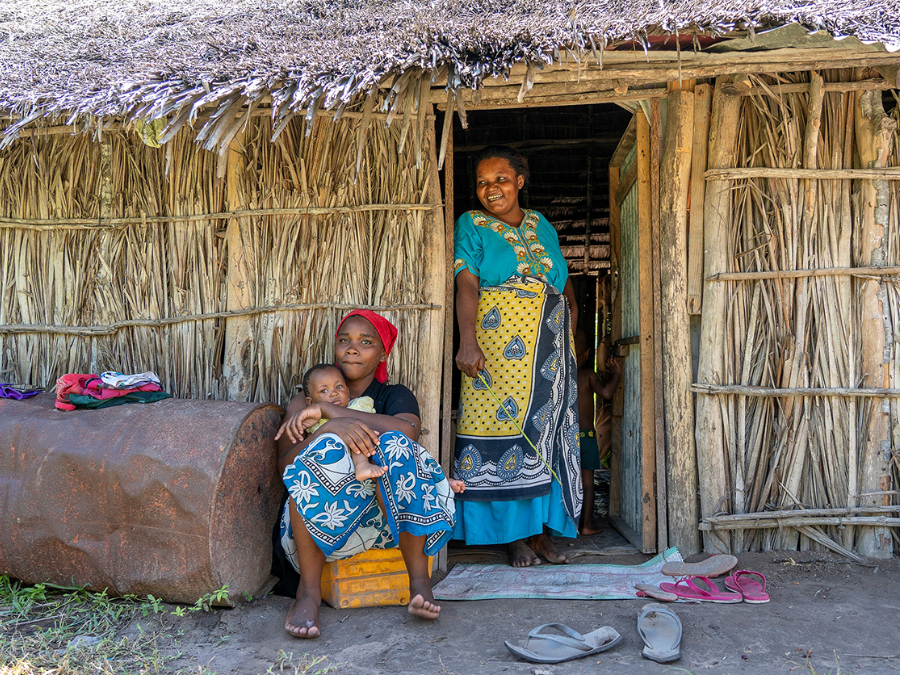
If you're from Zanzibar, you can witness the unparalleled African sunset every day, fish in the ocean daily, have children as a teenager, catch a cold in 20-degree weather, and if you're lucky, you might earn 40-50 dollars a month, which would be enough to support your entire family. Meanwhile, the majority live on just the equivalent of 15 dollars a month.
If you're from Zanzibar, the doctor will tell you for free what illness you have, but you will have to pay a hefty amount for treatment and medication, so your expected lifespan barely exceeds sixty years.
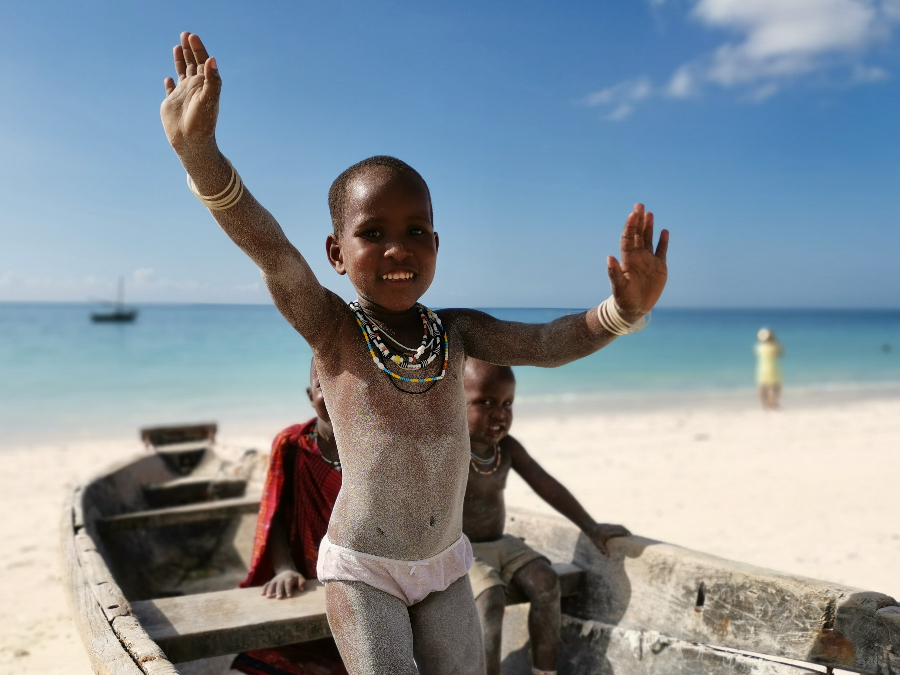
If you're from Zanzibar, you dream of your child finishing school, continuing their education, and having a hope for a better life, maybe even making their fortune in Europe or America. If you're from Zanzibar, you travel by bicycle or scooter, never turning on the lights because there is no electricity. You don't own furniture, unless you live in the capital, and from your mud-and-thatch hut, you might walk kilometers just to sit on the floor at a distant neighbor's house and watch the Africa Cup on their TV.
This is Africa! Love or hate. It either enchants you or completely robs your soul. There is no middle ground. This is a land of extremes.